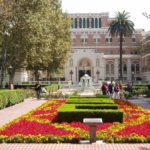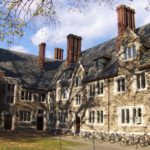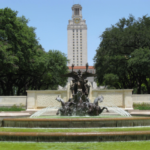The 7 HBCUs in Tennessee: Which is Right for you?
What’s Covered:
Historically Black Colleges and Universities (HBCUs) date as far back as the late 1830s, but the term wasn’t coined until the Higher Education Act of 1965, in which it was used to describe institutions of higher education founded prior to 1964 whose primary mission is to educate African-American students. HBCUs continue to play a critical role in the education of students of color, outperforming non-HBCU institutions in both the retention and graduation of first-generation, low-income Black students.
Today, more than 100 HBCUs are primarily found throughout the South, Mid-Atlantic, and Midwest—with seven HBCUs calling the state of Tennessee home.
The 7 HBCUs in Tennessee
1. Tennessee State University
Location: Nashville, TN
Acceptance Rate: 57%
Undergraduate Enrollment: 6,100
The Agricultural and Industrial Normal School, which would go on to become Tennessee State University (TSU), fielded its first class of 247 students in 1912. A lot has changed over the past 100+ years, but TSU remains committed to its legacy as both an HBCU and a land-grant institution to contribute to economic and community development by providing affordable and accessible educational programs.
TSU is one of just eleven HBCUs designated as a “high research activity” institution by the Carnegie Classification of Institutions of Higher Education. The university offers undergraduate degrees in everything from aeronautical and industrial technology to urban studies and graduates degrees in fields such as agriculture, engineering, and public service.
2. American Baptist College
Location: Nashville, TN
Acceptance Rate: NA
Undergraduate Enrollment: 55
For almost a century, American Baptist College (ABC) has been educating and developing students for leadership and service. A Christian College since its founding in 1924, all of ABC’s degree programs prepare students to become agents of change and advocates of social justice by helping them become critical and moral thinkers and instilling leadership. ABC offers three four-year degree programs:
- Bachelor of Arts Degree, Bible & Theology
- Bachelor of Arts Degree, Behavior Studies
- Bachelor of Arts in Entrepreneurial Leadership
3. Fisk University
Location: Nashville, TN
Acceptance Rate: 81%
Undergraduate Enrollment: 700
Founded in 1866, shortly after the end of the Civil War, Fisk University is the oldest institution of higher education in Nashville. Today, Fisk has a reputation for excellence and producing graduates who make an immediate impact in a wide range of fields, from social justice to the sciences. “D.E.T.A.I.L.S.” captures the university’s core values, provides the foundation of the Fisk experience, and guides day-to-day life on campus:
- Diversity: individual differences are collective strength
- Excellence: a lifelong pursuit of the highest standards
- Teamwork: excellence is achieved with the support of others
- Accountability: honesty about success and shortcomings
- Integrity: model truthful, compassionate behavior
- Leadership: empower other people through words and behavior
- Service: serve the community
Fisk’s core values have propelled its sterling reputation, the college is considered among the best HBCUs in Tennessee and the nation.
4. Knoxville College
Location: Knoxville, TN
Acceptance Rate: NA
Undergraduate Enrollment: NA
Knoxville College was founded in 1875 as part of the missionary effort of the United Presbyterian Church and since there were so few educational opportunities for African Americans, it initially offered classes from first grade through college level. Today, the Knoxville College still retains the roots of its founding, offering a church-related, coeducational, four-year, liberal arts experience.
Knoxville College once played a prominent role in the education of Knoxville’s Black community—roughly 17% of Knoxville’s population is Black—but has had a rocky road since losing its accreditation in 1997. On the upside, the college has a new president and a plan to revive this once-thriving institution.
5. Lane College
Location: Jackson, TN
Acceptance Rate: 61%
Undergraduate Enrollment: 1,200
Lane College was founded in the 1880s by one of the nation’s first Black church denominations, and religion continues to play a key role on the college’s campus today. Lane College views spiritual growth as an important part of the development of the individual and every student is required to attend a minimum of ten College Assembly/Chapel services per semester to graduate.
Spirituality is at the center of the Lane experience, but the college offers much more, including dozens of degrees through its three schools: School of Business, Social Science, and Behavioral Science; School of Liberal Studies and Education; and the School of Natural and Psychical Science. The school also keeps an active social calendar and is home to over 70 group activities encompassing everything from Greek organizations to athletics to music.
6. LeMoyne-Owen College
Location: Memphis, TN
Acceptance Rate: 100%
Undergraduate Enrollment: 800
LeMoyne-Owen College traces its roots back to the early 1860s and a school for freedmen and runaway slaves known as Lincoln Chapel. Over the course of LeMoyne-Owen’s century-plus history, the college has witnessed everything from race riots, yellow fever epidemics, Jim Crow laws, and segregation—transcending them all.
Today, the school provides a four-year liberal arts experience that prepares graduates to become leaders and for successful endeavors post-college. One factor that distinguishes LeMoyne-Owen from other HBCUs in Tennessee is its “home away from home” environment that fosters a close connection between students, faculty, and staff.
7. Meharry Medical College
Location: Nashville, TN
Acceptance Rate: NA
Undergraduate Enrollment: No undergraduates
The seventh HBCU in Tennessee—Meharry Medical College—doesn’t offer any undergraduate programs, but bears mentioning. Meharry Medical College is one of three historically Black medical schools in the United States. Meharry is affiliated with the United Methodist Church and is a top producer of primary care physicians and a leading producer of African Americans with Ph.Ds. in biomedical sciences. In addition to its medical school, Meharry also hosts a dental school, graduate school, and applied computational sciences school. It’s also home to the Center for Health Policy at Meharry.
What are Your Chances of Acceptance?
A variety of factors contribute to your chances of acceptance at an HBCU in Tennessee—everything from the selectivity of the school to the strength of your profile will play a part in whether you get in or not. CollegeVine can add clarity to the process. Our free chancing calculator uses a variety of metrics like your GPA and test scores, along with other considerations such as your extracurricular activities, to estimate your odds of acceptance at hundreds of schools and to provide tips to improve your profile.



